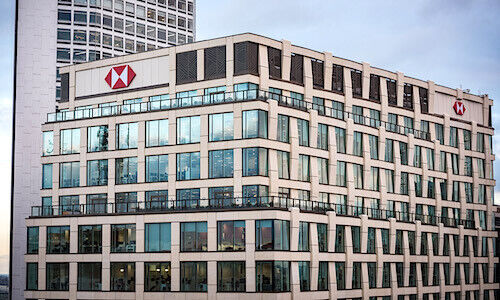U.K. Judge Blocks Huawei Request for HSBC Disclosure
A U.K. court has refused Huawei’s application to force HSBC to release internal documents in a bid to strengthen its case against the extradition of Meng Wanzhou to the U.S.
Huawei faces another setback in an attempt to disprove HSBC’s claim that the Chinese smartphone maker had deceived the British lender and that it had «repeatedly misrepresented» its business dealings in Iran, effectively contravening U.S. sanctions.
Meng Wanzhou, Huawei CFO and daughter of its founder, was detained in Canada in 2018 and since then, her lawyers have been attempting to prevent her extradition to the U.S. to face charges of bank and wire fraud related to business dealings in Iran conducted via a subsidiary called Skycom.
«This application for disclosure in the U.K. was without merit and we are pleased that the High Court agreed with our position,» according to an HSBC spokesperson.
Court Ruling
According to Justice Fordham, a high court judge in England, the ruling was made on the basis that the U.K. had no jurisdiction to issue the order requested by HSBC and that it also did not agree with the request on the grounds of interpretation. Huawei was also ordered to pay 80,000 British pounds to cover HSBC’s costs.
Huawei made the disclosure application based on rules set in an 1879 statute on bankers’ books but Judge Fordham said the law defined «books» as ledgers and similar entries» rather than «everything that a bank has, or does, or writes down, in the course of its ordinary business as a bank».
«Huawei is disappointed by today’s court ruling,» according to a spokesperson for the firm. «The pursuit of justice benefits from access to relevant information and clarity of fact.»
2013 PPT
The disclosure application involves documents that Huawei lawyers claim are related to a meeting between Meng and a senior banker at a Hong Kong-based restaurant in August 2013.
During the meeting, Meng allegedly delivered a 16-slide PowerPoint presentation but her lawyers claim that U.S. prosecutors omitted key information from two slides that disclosed the Iranian business dealings.
If true, this would place doubt not only on U.S. claims but also on HSBC’s claims, according to Meng’s lawyers, as it would prove they had sufficient information to assess the risk for clearing U.S. dollar transactions.






















